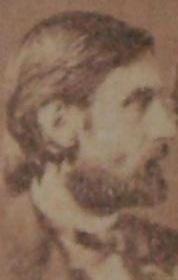As I have now given a trial to both sides of the question, I beg respectfully to assure the brotherhood of smokers that it does not pay to smoke. It really does not. I can work better and longer than before. I have less headache. I have a better opinion of myself. I enjoy exercise more, and step out much more vigorously. My room is cleaner. The bad air of our theatres and other public places disgusts and infuriates me more, but exhausts me less. I think I am rather better tempered, as well as more cheerful and satisfied.
-51-
I endure the inevitable ills of life with more fortitude, and look forward more hopefully to the coming years. It did not pay to smoke, but, most decidedly, it pays to stop smoking.
-52-
Other Writings on Tobacco Effects

[In interim, pending completion of this site,
to add the section on alcohol,
you can obtain this book via your local library.]
object; we passed thirteen drunken men within a walk of an hour,—many of them were so far gone as to be totally unable to walk. . . . In passing between Paris and London, I have been more struck by drunkenness in the streets of the former than in those of the latter." Horatio Greenough gives similar testimony respecting Italy: "Many of the more thinking and prudent Italians abstain from the use of wine; several of the most eminent of the medical men are notoriously opposed to its use, and declare it a poison. One fifth, and sometimes one fourth, of the earnings of the laborers are expended in wine."
I have been surprised at the quantity, the emphasis, and the uniformity of the testimony on this point. Close observers of the famous beer countries, such as Saxony and Bavaria, where the beer is pure and excellent, speak of this delicious liquid as the chief enemy of the nobler faculties and tastes of human nature. The surplus wealth, the surplus time, the surplus force of those nations, are chiefly expended in fuddling the brain with beer. Now, no reader needs to be informed that the progress of man, of nations, and of men depends upon the use they make of their little surplus. It is not a small matter, but a great and weighty consideration,—the cost of these drinks in mere money. We drinkers must make out a very clear case in order to justify such a country as France in producing a billion and a half of dollars worth of wine and brandy per annum.
The teetotalers, then, are right in their leading po-
-96-
sitions, and yet they stand aghast, wondering at their failure to convince mankind. Mr. E. G. Delavan writes from Paris within these few weeks:"When I was here thirty years since, [French King] Louis Philippe [1830-1848] told me that wine was the curse of France; that he wished every grapevine was destroyed, except for the production of food; that total abstinence was the only true temperance; but he did not believe there were fifteen persons in Paris who understood it as it was understood by his family and myself; but he hoped from the labors in America, in time, an influence would flow back upon France that would be beneficial I am here again after the lapse of so many years, and in place of witnessing any abatement of the evil, I think it is on the increase, especially in the use of distilled spirits."
The teetotalers have underrated the difficulty of the task they have undertaken, and misconceived its nature. It is not the great toe that most requires treatment when a man has the gout, although it is the great toe that makes him roar. When we look about us, and consider the present physical life of man, we are obliged to conclude that the whole head is sick and the whole heart is faint. Drinking is but a symptom which reveals the malady. Perhaps, if we were all to stop our guzzling suddenly, without discontinuing our other bad habits, we should rather lose by it than gain. Alcohol supports us in doing wrong! It prevents our immediate destruction. The thing for us to do is, to strike at the causes of drinking, to cease the bad breathing, the bad eating, the bad reading, the
-97-
bad feeling and bad thinking, which, in a sense, necessitate bad drinking. For some of the teetotal organizations might be substituted Physical Welfare Societies.
The Human Race is now on trial for its life! One hundred and three years ago last April, James Watt, a poor Scotch mechanic, while taking his walk on Sunday afternoon on Glasgow Green, conceived the idea which has made steam man's submissive and untiring slave. Steam enables the fifteen millions of adults in Great Britain and Ireland to produce more commodities than the whole population of the earth could produce without its assistance. Steam, plus the virgin soil of two new continents, has placed the means of self-destruction within the reach of hundreds of millions of human beings whose ancestors were almost as safe in their ignorance and poverty as the beasts they attended. At the same time, the steam-engine is an infuriate propagator; and myriad creatures of its producing—creatures of eager desires, thin brains, excessive vanity, and small self-control—seem formed to bend the neck to the destructive tyranny of fashion, and yield helplessly to the more destructive tyranny of habit. The steam-engine gives them a great variety of the means of self-extirpation,—air-tight houses, labor-saving machines, luxurious food, stimulating drinks, highly wrought novels, and many others. Let all women for the next century but wear such restraining clothes as are now usual, and it is doubtful if the race could ever recover from the effects; it is doubtful
-98-
if there could ever again be a full-orbed, bouncing baby. Wherever we look, we see the human race dwindling.
The English aristocracy used to be thought an exception, but Miss [Florence] Nightingale [1820-1910] says not. She tells us that the great houses of England, like the small houses of America, contain
- great-grandmothers [1650's-1700's] possessing constitutions without a flaw,
- grandmothers [1700's-1750's] but slightly impaired,
- mothers [1750's-1800's] who are often ailing and never strong,
- daughters [1800's-1850's] who are miserable and hopeless invalids.
And the steam-engine has placed efficient means of self-destruction within reach of the kitchen, the stable, the farm, and the shop; and those means of self-destruction are all but universally used.
Perhaps man has nearly run his course in this world, and is about to disappear, like the mammoth, and give place to some nobler kind of creature who will manage the estate better than the present occupant. Certainly we cannot boast of having done very well with it, nor could we complain if we should receive notice to leave. Perhaps James Watt came into the world to extinguish his species. If so, it is well. Let us go on eating, drinking, smoking, over-working, idling, men killing themselves to buy clothes for their wives, wives killing themselves by wearing them, children petted and candied into imbecility and diphtheria. In that case, of course, there will be no Coming Man, and we need not take the trouble to inquire what he will do.
But probably the instinct of self-preservation will assert itself in time, and an antidote to the steam-
-99-
room. There, whether he raves or droops, he is the most miserable wretch on earth; for, besides the bodily tortures which he suffers, he has to endure the most desolating pang that a decent human being ever knows,—the loss of his self-respect. He abhors himself and is ashamed; he remembers past relapses and despairs, he cannot look his own children in the face; he wishes he had never been born, or had died in the cursed hour, vividly remembered, when this appetite mastered him first. As his health is restored, his hopes revive; he renews his resolution and he resumes his ordinary routine, subdued, distrustful of himself, and on the watch against temptation. Why he again relapses he can hardly tell, but he always does. Sometimes a snarl in business perplexes him, and he drinks for elucidation. Sometimes melancholy oppresses him, and he drinks to drive dull care away. Sometimes good fortune overtakes him, or an enchanting day in June or October attunes his heart to joy, and he is taken captive by the strong delusion that now is the time to drink and be glad. Often it is lovely woman who offers the wine, and offers it in such a way that he thinks he cannot refuse without incivility or confession. From conversation with the inmates of the Inebriate Asylum, I am confident that Mr. Greeley's assertion with regard to the wine given at the Communion is correct. That sip might be enough to awaken the. desire. The mere odor of the wine filling the church might be too much for some men.
There appears to be a physical cause for this ex-
-108-
treme susceptibility. Dr. [Albert] Day has once had the opportunity to examine the brain of a man who, after having been a drunkard, reformed, and lived for some years a teetotaler. He found, to his surprise, that the globules of the brain had not shrunk to their natural size. They did not exhibit the inflammation of the drunkard's brain, but they were still enlarged, and seemed ready on the instant to absorb the fumes of alcohol and resume their former condition. He thought he saw in this morbid state of the brain the physical part of the reason why a man who has once been a drunkard can never again, as long as he lives, safely take one drop of any alcoholic liquor. He thought he saw why a glass of wine puts the man back instantly to where he was when he drank all the time. He saw the citadel free from the enemy, swept and clean, but undefended, incapable of defence, and its doors opened wide to the enemy's return; so that there was no safety, except in keeping the foe at a distance, away beyond the outermost wall.
There are many varieties of these occasional drunkards, and, as a class, they are perhaps the hardest to cure. Edgar Poe was one of them; half a glass of wine would set him off upon a wild, reckless debauch, that would last for days. All such persons as artists, writers, and actors used to be particularly subject to this malady, before they had any recognized place in the world, or any acknowledged right to exist at all. Men whose labors are intense, but irregular, whose gains are small and uncertain, who would gladly be
-109-

[In interim, pending completion of this section,
you can obtain this book via your local library.]
| Parton was a prominent best-selling biography writer in the nineteenth century. Biographies included of Horace Greeley, Aaron Burr, and Andrew Jackson.
|
 Welcome to the book Smoking and Drinking (1868), by James Parton, the tobacco portion only. To go to the "Table of Contents" immediately, click here.
Welcome to the book Smoking and Drinking (1868), by James Parton, the tobacco portion only. To go to the "Table of Contents" immediately, click here.

